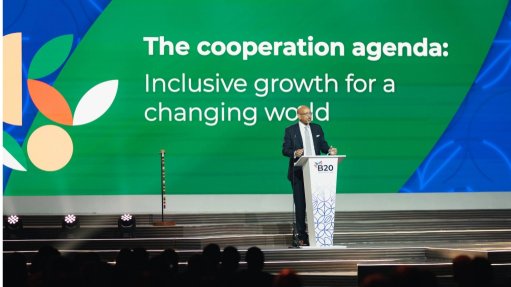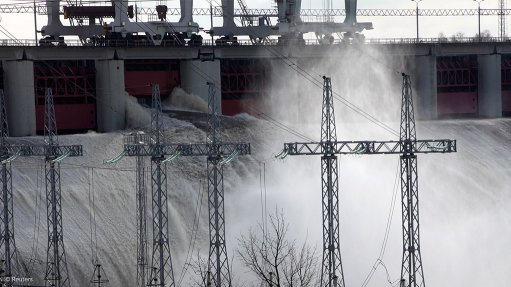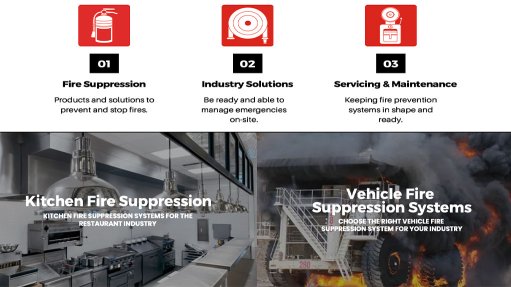Mining's contribution to India's GDP falling
KOLKATA (miningweekly.com) – The mining sector’s contribution to India’s gross domestic product (GDP) has been falling over the past several years, largely owing to the under-exploration of obvious geological potential (OGP) and decreasing per unit expenditure on exploration.
This is according to the Federation of India Mineral Industries (FIMI), which in a report states that the mining industry’s contribution (excluding petroleum and natural gas) to India’s GDP in 2018/19 was pegged at 1.63%, down from a peak of 1.93% in 2012/13.
In 2016/17, mining’s contribution to GDP was at an all-time low of 1.54%.
This against the backdrop of the fact that eight core sectors of the Indian economy – coal, fertiliser, electricity, steel and cement – were dependent on mining.
In comparison, mining contributed 7.5% to South Africa's GDP and 6.99% to Australia's GDP, the FIMI report notes.
The low contribution to the GDP was a direct fallout of India’s inability to leverage greater exploration of OGP. Of the total OGP area of 0.571-million square kilometres, or about 17.4% of India’s land mass, the area explored was 10% of OGP, or just 1.74% of country’s land mass, and actual mining conducted over 1.5% of the OGP area, the FIMI report says.
The low per unit expenditure on exploration over the years has resulted in a low rate of development of total OGP area. For example, Indian expenditure on exploration was $17/km2, compared with $246/km2 in Australia, $192/km2 in Canada, $67/km2 in China and $51/km2 in Brazil.
Citing data from the Mines Ministry, the FIMI report says that Indian expenditure on exploration during 2016, 2017 and 2018 has been recorded at $0.13-billion, $0.15-billion and $0.17-billion respectively. As a result, minerals, metals and their products accounted for 25% of total Indian imports, second only to petroleum and its products, the report said.
The FIMI analysis of data from the Indian Bureau of Mines and the Commerce Ministry shows that the country’s net import dependency was 100% in the case of cobalt, nickel, platinum alloys, diamonds, gold, tungsten ores and concentrates and asbestos. Net import dependency ranged between 77% and 99% in the case of fluorspar, cadmium, silver, copper concentrate, tin concentrate and rock phosphate.
In the case of manganese, the net import dependency was 49%, coal (non-coking) 21% and coking coal 56%, the analysis revealed.
In terms of value, total imports excluding coal has been 4.3 times higher than the aggregate value of domestic production, the report points out.
Article Enquiry
Email Article
Save Article
Feedback
To advertise email advertising@creamermedia.co.za or click here
Comments
Press Office
Announcements
What's On
Subscribe to improve your user experience...
Option 1 (equivalent of R125 a month):
Receive a weekly copy of Creamer Media's Engineering News & Mining Weekly magazine
(print copy for those in South Africa and e-magazine for those outside of South Africa)
Receive daily email newsletters
Access to full search results
Access archive of magazine back copies
Access to Projects in Progress
Access to ONE Research Report of your choice in PDF format
Option 2 (equivalent of R375 a month):
All benefits from Option 1
PLUS
Access to Creamer Media's Research Channel Africa for ALL Research Reports, in PDF format, on various industrial and mining sectors
including Electricity; Water; Energy Transition; Hydrogen; Roads, Rail and Ports; Coal; Gold; Platinum; Battery Metals; etc.
Already a subscriber?
Forgotten your password?
Receive weekly copy of Creamer Media's Engineering News & Mining Weekly magazine (print copy for those in South Africa and e-magazine for those outside of South Africa)
➕
Recieve daily email newsletters
➕
Access to full search results
➕
Access archive of magazine back copies
➕
Access to Projects in Progress
➕
Access to ONE Research Report of your choice in PDF format
RESEARCH CHANNEL AFRICA
R4500 (equivalent of R375 a month)
SUBSCRIBEAll benefits from Option 1
➕
Access to Creamer Media's Research Channel Africa for ALL Research Reports on various industrial and mining sectors, in PDF format, including on:
Electricity
➕
Water
➕
Energy Transition
➕
Hydrogen
➕
Roads, Rail and Ports
➕
Coal
➕
Gold
➕
Platinum
➕
Battery Metals
➕
etc.
Receive all benefits from Option 1 or Option 2 delivered to numerous people at your company
➕
Multiple User names and Passwords for simultaneous log-ins
➕
Intranet integration access to all in your organisation


















